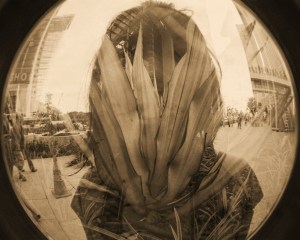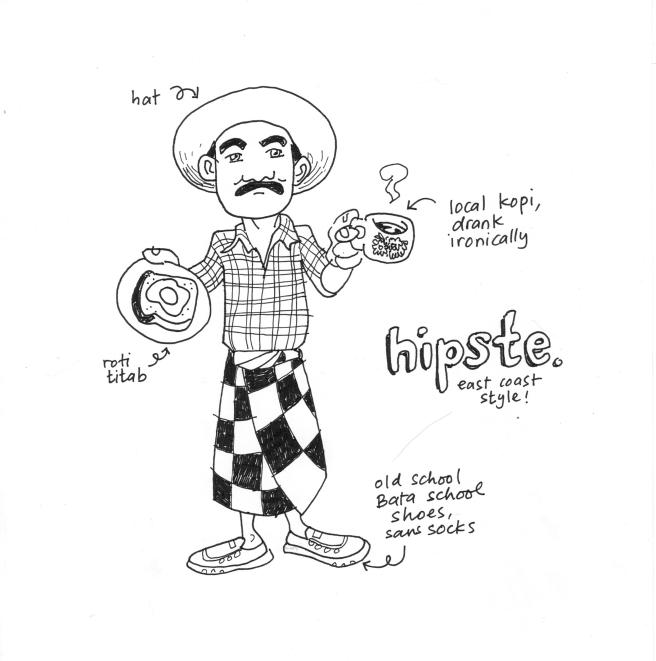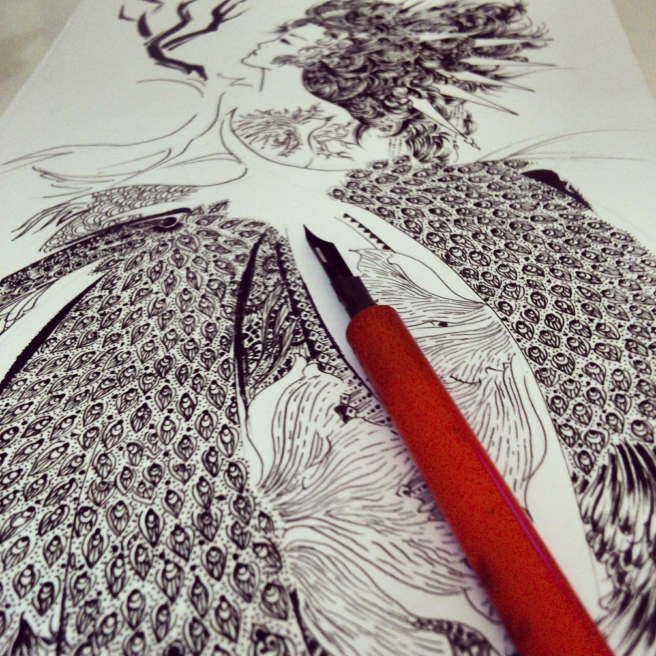An excerpt from “How the Jungle Got Its Spirit Guardian”, published in Phantazein (FableCroft Publishing).
One morning in the jungle, without blinking, Tenu shot down two from the flock of toucans fleeing from Daza’s jumble of notes and said, “Enough. We are finished for the day.”
Daza could hardly complain as he followed her into the clearing to which she carried the birds. The sun was high over the trees as Tenu piled sticks in a circle, sat on a fallen log, and began rubbing a long twig between her palms.
When Daza realized what she intended to do, he took one of the toucans’ still-warm bodies and placed it atop a stump. He said, “I know you have no patience with me, Tenu. But if you can find it in you to wait a while, I promise it will not be in vain. Let me apologize for your Tateh.”
Then he lopped off the toucan’s head with his hunting knife, tracing the symbol of Vaya in blood on the ground around the firewood, muttering a prayer of thanks. When the blood was drained, he returned to the stump and plucked the feathers from the carcass, gutted it, and seasoned everything with the salt and paste and oregano he kept wrapped in banana leaves in a pouch. He asked Tenu—who had been noting his precision, his oscillations between savagery and gentleness as she got the fire going—to procure for him a tomato from her father’s jungle garden. After halving it, Daza squeezed the pulp over the length of the bird, and chopped up the remains. Then he skewered the entrails, then the body, set the carcass over the now burning ring of twigs, and turned it until they were nice and brown.
When it was done, Daza speared a piece with his knife and handed it to Tenu. She blew on it, bit it off, chewed, and let the juices spread over her tongue. A moment of thoughtful silence passed. She said, “I see.”
“See what?”
“You belong to the wrong god.”
Daza averted his gaze. “Boys are not supposed to cook.”
Tenu gestured to her pipes. “And girls are not supposed to hunt. But look at me.”
“Machen does not know I watch and listen to her teach my sisters to cook. She is grooming baika Tachi as the next doru.”
Tenu sniffed. “Do not be insulted, but I heard your baika can barely soak maize.”
They ate for a while in wordless understanding.
“Tenu, do you hate me?” said Daza suddenly.
“How sly you are,” she answered. “To ask me such a question when I am stuffing myself with your savory food.”
“Do you?”
“Your word choice is stronger than your spices. No, I do not—I used to think you were useless,” Tenu added, and the twinkle in her eyes caught Daza by surprise. “And if what you are truly wondering is if I blame you for what happened to Tateh, no, I do not. I could, but I do not.”
“Then why did you seem angry with me when—?”
“Well, to be truthful, I blamed you then,” Tenu was quick to answer. “And the way the villagers fawned over you when it was so clear you were incapable of the music left a bad taste in my mouth. Not that I care for them, you understand. But I think they believe in all the wrong things.”
Daza flinched at her honesty, but he was grateful for it. At least she bore him no ill will. They ate again in silence until at length, he said, “Tenu, what do I do? Everyone expects me to hunt for my family now—yet I cannot make music, I cannot trap beasts!”
Tenu finished her meal, licked the tips of her fingers. “That was very good. Better than I have had in a long time, and I usually eat the neighbor’s leftovers and the occasional insect when they are too busy. You cook like a woman.”
“Tenu!”
“And,” she added with a pointed stare. “I hunt like a man.”
Cupped in her hands like a precious gem was the other toucan, which she held out to Daza. He stared a while at the carcass, met Tenu’s eyes, nodded, and took it from her.






